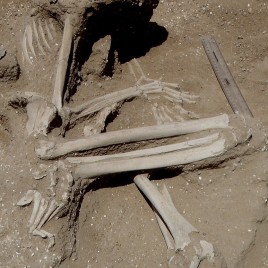Using the lessons learned from Ontario’s wind-energy disputes, a group has identified factors that cause those disputes, and put forward recommendations for avoiding them. The group includes social scientists, community representatives, and wind-energy advocates.
Concerns arise over such things as the distribution of financial benefits and compensation, and effects on the environment and the health of nearby residents.
The authors suggest Ontario should experiment with a range of community-ownership models while the government provides funds for some of the costs of the project. Publishing the average payment to landowners whose property will be impacted by the project, as well as making early offers of compensation to neighbours, is also recommended.
Finally the authors believe the government must review visual impacts in the same manner they review heritage impacts if the project’s proponents acknowledge a visual impact in the region.
Original research paper published in Nature Energy on January 25, 2015.
Names and affiliations of selected authors


